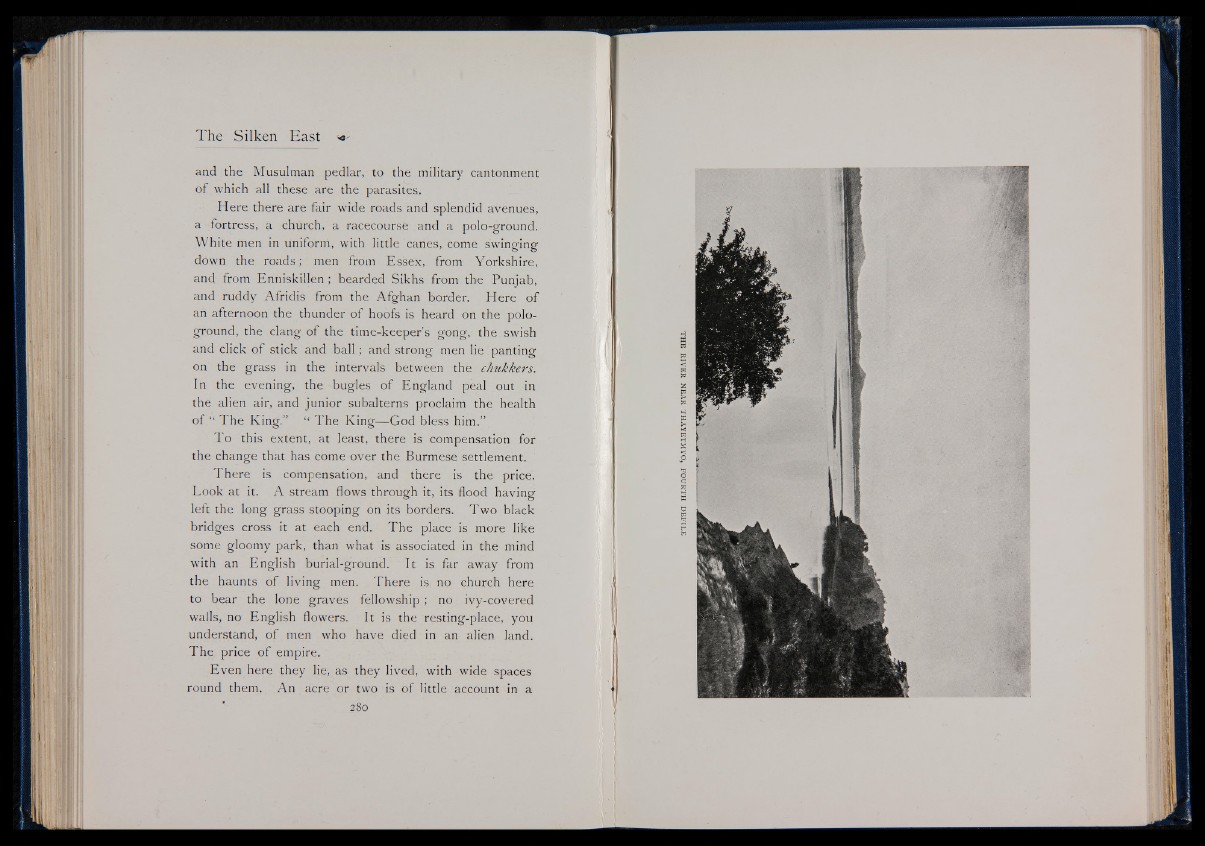
and the Musulman pedlar, to the military cantonment
of which all these are the parasites.
Here there are fair wide roads and splendid avenues,
a fortress, a church, a racecourse and a polo-ground.
White men in uniform, with little canes, come swinging
down the roads; men from Essex, from Yorkshire,
and from Enniskillen ; bearded Sikhs from the Punjab,
and ruddy Afridis from the Afghan border. Here of
an afternoon the thunder of hoofs is heard on the polo-
ground, the clang of the time-keeper’s gong, the swish
and click of stick and ball; and strong men lie panting
on the grass in the intervals between the chukkers.
In the evening, the bugles of England peal out in
the alien air, and junior subalterns proclaim the health
of “ The King.” “ The King-^God bless him.”
To this extent, at least, there is compensation for
the change that has come over the Burmese settlement.
There is compensation, and there is the price.
Look at it. A stream flows through it, its flood having
left the long grass stooping on its borders. Two black
bridges cross it at each end. The place is more like
some gloomy park, than what is associated in the mind
with an English burial-ground. It is far away from
the haunts of living men. There is no church here
to bear the lone graves fellowship ; no ivy-covered
walls, no English flowers. It is the resting-place, you
understand, of men who have died in an alien land.
The price of empire.
Even here they lie, as they lived, with wide spaces
round them. An acre or two is of little account in a
280